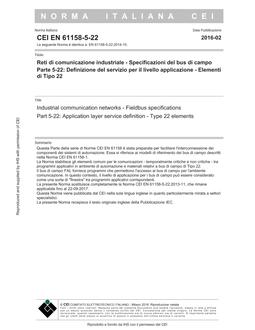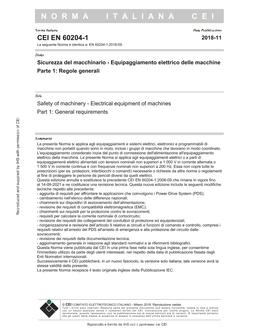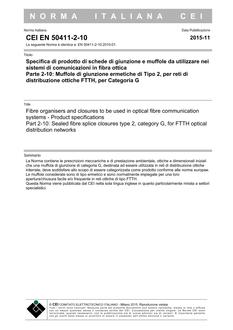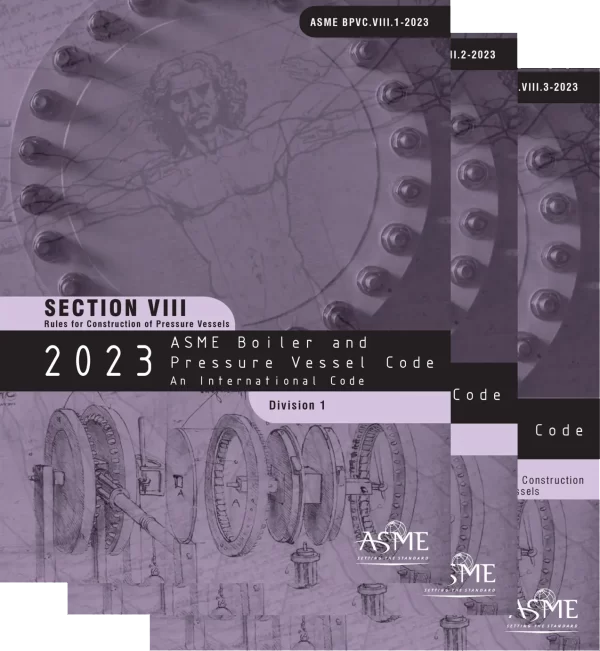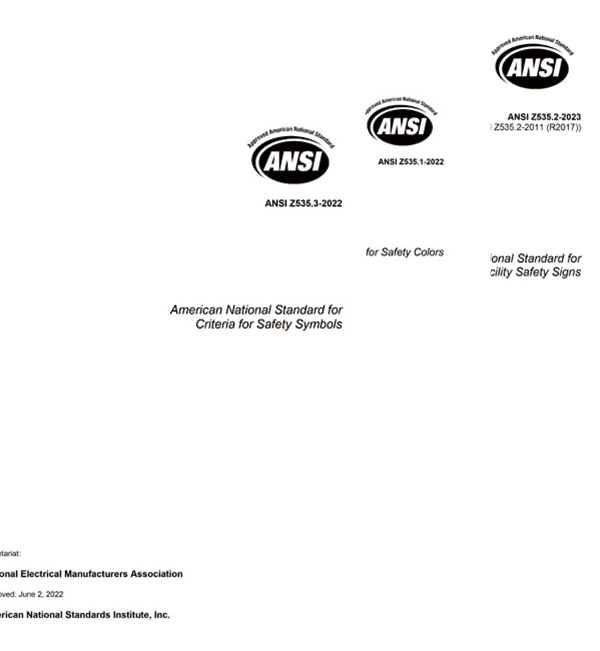CEI EN 61158-5-22
2016
Industrial communication networks – Fieldbus specifications Part 5-22: Application layer service definition – Type 22 elements
- Format:
- Language(s) :
- Published :
- English
- 02/01/2016
General
The fieldbus application layer (FAL) provides user programs with a means to access the fieldbus communication environment. In this respect, the FAL can be viewed as a “window between corresponding application programs.”
This standard provides common elements for basic time-critical and non-time-critical messaging communications between application programs in an automation environment and material specific to Type 22 fieldbus. The term “time-critical” is used to represent the presence of a time-window, within which one or more specified actions are required to be completed with some defined level of certainty. Failure to complete specified actions within the time window risks failure of the applications requesting the actions, with attendant risk to equipment, plant and possibly human life.
This standard defines in an abstract way the externally visible service provided by the fieldbus application layer in terms of
a) an abstract model for defining application resources (objects) capable of being manipulated by users via the use of the FAL service;
b) the primitive actions and events of the service;
c) the parameters associated with each primitive action and event, and the form which they take; and
d) the interrelationship between these actions and events, and their valid sequences.
The purpose of this standard is to define the services provided to
a) the FAL user at the boundary between the user and the application layer of the fieldbus reference model; and
b) Systems Management at the boundary between the application layer and Systems Management of the fieldbus reference model.
This standard specifies the structure and services of the fieldbus application layer, in conformance with the OSI Basic Reference Model (ISO/IEC 7498-1) and the OSI application layer structure (ISO/IEC 9545).
FAL services and protocols are provided by FAL application-entities (AE) contained within the application processes. The FAL AE is composed of a set of object-oriented application service elements (ASEs) and a layer management entity (LME) that manages the AE. The ASEs provide communication services that operate on a set of related application process object (APO) classes. One of the FAL ASEs is a management ASE that provides a common set of services for the management of the instances of FAL classes.
Although these services specify, from the perspective of applications, how request and responses are issued and delivered, they do not include a specification of what the requesting and responding applications are to do with them. That is, the behavioral aspects of the applications are not specified; only a definition of what requests and responses they can send/receive is specified. This permits greater flexibility to the FAL users in standardizing such object behavior. In addition to these services, some supporting services are also defined in this standard to provide access to the FAL to control certain aspects of its operation.
Specifications
The principal objective of this standard is to specify the characteristics of conceptual application layer services suitable for time-critical communications, and thus supplement the OSI Basic Reference Model in guiding the development of application layer protocols for timecritical communications.
A secondary objective is to provide migration paths from previously-existing industrial communications protocols. It is this latter objective which gives rise to the diversity of services standardized as the various Types of IEC 61158, and the corresponding protocols standardized in subparts of IEC 61158-6.
This specification may be used as the basis for formal application programming interfaces. Nevertheless, it is not a formal programming interface, and any such interface will need to address implementation issues not covered by this specification, including:
a) the sizes and octet ordering of various multi-octet service parameters; and
b) the correlation of paired request and confirm, or indication and response, primitives.
Conformance
This standard does not specify individual implementations or products, nor does it constrain the implementations of application layer entities within industrial automation systems.
There is no conformance of equipment to this application layer service definition standard. Instead, conformance is achieved through implementation of conforming application layer protocols that fulfill the application layer services as defined in this standard.
| CEI EN 61158-5-22 | |
|---|---|
| STANDARD INFO: | |
| Standard Name | CEI EN 61158-5-22 |
| Scope | Industrial communication networks - Fieldbus specifications Part 5-22: Application layer service definition - Type 22 elements |
| Publisher | CEI - Comitato Elettrotecnico Italiano |
| Languages | English |
| State | [ Active ] |
| Publication Year | 2016 |
| Most recent Version | MOST RECENT |
| Whether to be replaced | |
| Addendum | |
| FILE INFO: | |
| Edition | 16 |
| File Size | 1 file , 2.1 MB |
| Number of Pages | 84 |
| Published | 02/01/2016 |
| CEI EN 61158-5-22 | ||
|---|---|---|
| History | Publisher Year | |
| CEI EN 61158-5-22 | 2016 | Current |
| CEI EN 61158-5-22 | 2013 |
Related products
- Format:
- Language(s) :
- Published :
- English
- 11/01/2018
$140
- Format:
- Language(s) :
- Published :
- English
- 11/01/2015
$25

Over 3,000,000 global standards
Our standards library is extensive, with over 2 million documents, ensuring we meet the needs of various industries. Whether it’s ASME, DIN, ASTM or ISO and other internationally recognized standards, we offer complete documents and the latest versions to help customers adhere to industry regulations in their projects. Whether your needs are technical standards, regulatory requirements, or design guidelines, our standards library provides comprehensive support.
24 online customer service
Our team includes up to 50 engineers from fields such as healthcare, electronics, and construction, who can answer your technical questions and ensure you find the correct and accurate standard documents. We are dedicated to helping you find the best solution that meets your needs.

Thanks to the StandardsClub customer service team for helping me find the ASME BPVC-2023 SET I was looking for in a high-quality PDF version. Their assistance was excellent, and the document quality exceeded my expectations!
This standard document is very detailed, covering all relevant technical points, and provides comprehensive guidance for my project. The ANSI/NEMA Z535 SET was exactly what I needed, and I am very satisfied with the quality!
The purchasing process was straightforward, the price was very competitive, and the download was quick. The Tissue Engineering Standards Addressing Product Quality and Characterization Package was of excellent quality and provided all the information I needed. Definitely a great value for the price!
“Got questions? Our professional customer service is ready to assist you anytime. Whether it’s finding documents, getting discounts, or navigating the purchase process, let us help you get the standards you need!”

Sign Up Our Newsletter
Don’t miss out! Subscribe now to get exclusive offers and industry insights!
We care about your data in ou privacy policy.

